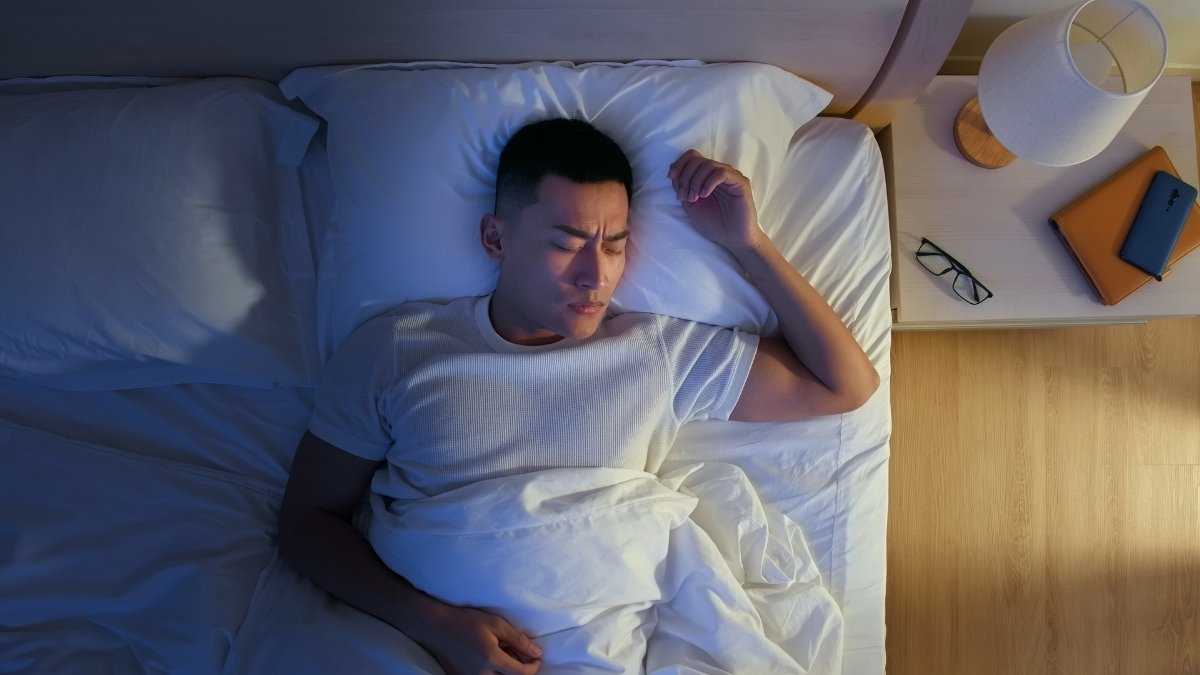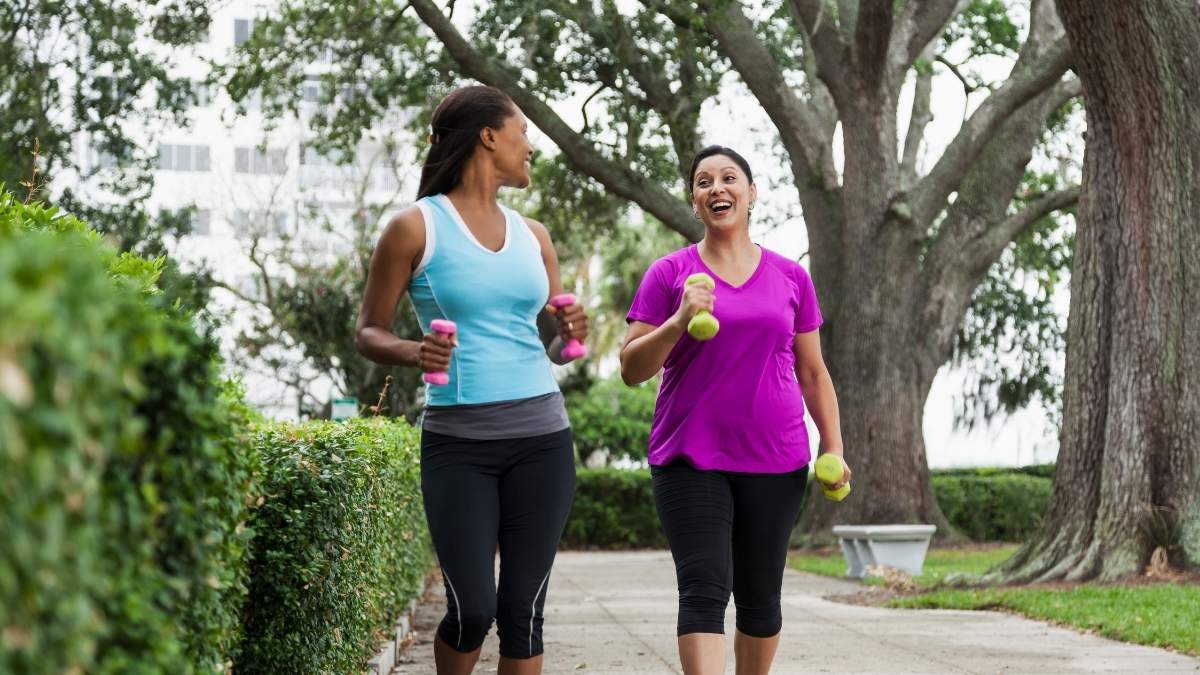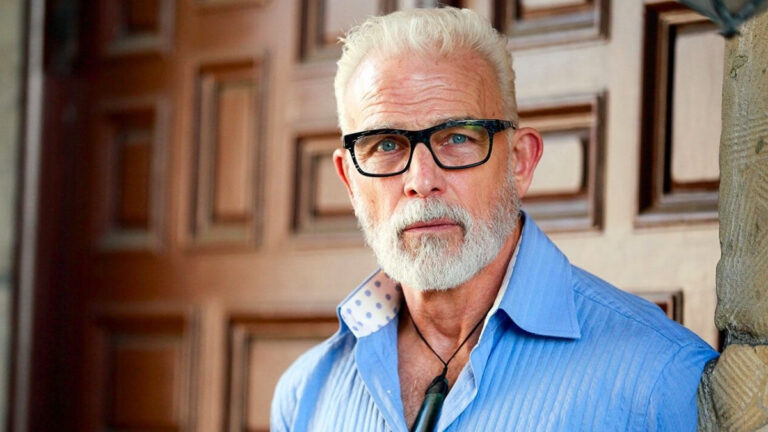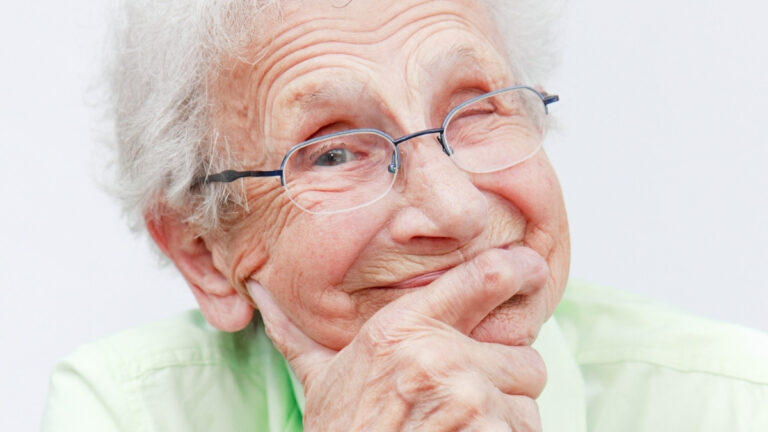I Spent a Day With a 60-Year-Old Superhuman — His Habits Are Wild (Must-Read Secrets)

At 60, most people are contemplating retirement and accepting age-related decline. But Dr. Kimberly Besuden decided to become a competitive cyclist instead—and the habits she discovered could add decades to your life.
You’re tired of the noise. Celebrity biohackers spending millions on unproven treatments. Conflicting advice from experts who can’t agree on anything. Expensive longevity protocols that require a medical team and a second mortgage.
Meanwhile, you just want the truth. What actually works for healthy aging after 60? What can you skip? And most importantly—what can you start today without breaking the bank or rearranging your entire life?
Here’s what you’ll learn: Eight science-backed strategies that can add 5-20+ years to your lifespan. Real examples from people in their 60s who reversed their biological age. The expensive biohacks you can ignore. And a sustainable daily routine that fits into normal life.

This isn’t about perfection. It’s about progress. Small changes that compound over time. These longevity habits work because they’re simple, proven, and built for real people—not tech billionaires with unlimited resources.
The Science vs. The Hype: What Research Says About Longevity After 60
Here’s something most people get wrong: they think aging is all about your genes. The truth? Your daily choices matter way more than your DNA.
Research shows genetics account for less than 10% of how long you live. The other 90%? That’s what you eat, how you move, and how you sleep. This means you have real control over your aging process.

And it’s never too late to start. Scientists found that adopting healthy habits in your 40s, 50s, or even 60s still adds years to your life. Your body responds to positive changes at any age.
Here’s where it gets interesting. While tech billionaires spend millions on unproven treatments, simple habits work better. People who adopted eight basic health habits at age 40 lived more than 20 years longer than those who didn’t. We’re talking about basics: moving your body, eating real food, sleeping well, and staying connected to people you care about.

But there’s a catch most doctors don’t explain. Living longer means nothing if you’re sick and miserable. That’s the difference between lifespan (how long you live) and healthspan (how long you live well). The goal isn’t just hitting 90—it’s hiking at 90.
Regular movement alone can add up to 6.9 years. Quality sleep? Men gain 4.7 years, women gain 2.4 years. These aren’t small changes.
Your biological age (how old your cells act) matters more than your chronological age (the number on your birthday cake). A 60-year-old with good habits can have the body of a 45-year-old. A 40-year-old with terrible habits? Their body might be 60.
Why Lifting Weights at 60 Is Non-Negotiable (and How to Start)
Your muscles are disappearing. After 30, you lose 3-5% of your muscle mass every decade. By 60, climbing stairs gets harder. Opening jars becomes a struggle. Falls turn into broken bones.
Cardio won’t save you. Only strength training rebuilds what age takes away.
Here’s proof: Dena Aloian Crews had weak bones at 63. Her doctor said she had osteopenia—the step before osteoporosis. Six months of lifting weights changed everything. She recovered 6.5% of her lost muscle mass. Now she does box jumps and deadlifts. Her bones are stronger than they were at 50.

Seniors who lift weights fall less. They break fewer bones. Research shows resistance training lowers your risk of death from all causes. It’s not just about looking fit—it’s about staying independent.
You don’t need a gym membership. Start with two sessions per week. Pick five exercises. Do three sets of 10 reps. That’s it.

Try these first: bodyweight squats (hold a chair if needed), wall push-ups, resistance band rows, light dumbbell curls, and standing leg lifts. Patricia Greaves, a 58-year-old trainer, uses these exact moves with her clients.
Even a 74-year-old doctor hits the gym a few times weekly. If she can do it, so can you.
The best time to start was 20 years ago. The second best time is today.
The 7-Hour Rule: How Sleep Quality Adds Years to Your Life
You’re probably sleeping wrong. And it’s killing you faster than you think.
Quality sleep can add 3.5 to 4.5 years to your life. But here’s the problem: 70% of people aren’t getting enough. Most need seven to eight hours. Most get way less.

Sleep quality matters more than just hours in bed. Scientists track five things: how long you sleep, how fast you fall asleep, whether you stay asleep, if you need pills to sleep, and whether you wake up feeling rested. People who nail all five live significantly longer.
Your body repairs itself while you sleep. It clears out brain waste. It rebuilds muscles. It balances hormones. Skip this, and your biological age jumps up fast.
Here’s what works: Go to bed at the same time every night. Wake up at the same time every morning. Yes, even weekends. Your body loves routine.

Stop eating three hours before bed. Exercise during the day, not at night. Keep your bedroom cold—around 65-68 degrees works best. Make it dark. Blackout curtains help.
The morning matters too. Get sunlight within 30 minutes of waking up. This resets your internal clock and helps you sleep better that night.
The ‘Exercise Snack’ Method: Why 30 Minutes Beats Hours at the Gym
You don’t need to live at the gym. You just need to move more often.
A Norwegian study tracked people aged 70-77. Those who did high-intensity training just two days a week saw the biggest improvements in quality of life. Not five days. Not every day. Two days.
Here’s the secret: movement throughout the day beats one long workout. Scientists call these “exercise snacks.” Do 10 squats every hour. Five push-ups while your coffee brews. Wall-sits during TV commercials. These mini-bursts keep your muscles active and your metabolism running.

The magic number? 150 minutes of moderate activity per week. That’s 30 minutes, five days a week. Or 75 minutes of hard exercise. Add strength training twice weekly, and you’re golden.
Try Zone 2 training: exercise where you can still talk but feel your heart working. That’s 60-70% of your max heart rate. Walk briskly for 35-40 minutes. Your body burns fat and builds endurance.
Mix in some intensity. Short bursts of hard effort—like walking up hills or doing stairs—improve your heart health fast.

Balance matters too. Tai Chi helps prevent falls. So do single-leg stands while brushing your teeth.
The best exercise? The one you’ll actually do. Find something you enjoy. Athletes over 50 who stay active long-term all say the same thing: they found their flow.
Forget Supplements: The Eating Pattern That Adds 10 Years
Stop buying expensive supplements. Your food matters more.
A 2025 study tracked thousands of people to age 70. Only 9% made it disease-free. What did they eat? Mediterranean diet—low red meat, high fruits, vegetables, legumes, and whole grains. That’s the pattern that works.
Red meat and processed meat speed up aging. Swap them for plants and fish. Your cells will thank you.

Protein keeps your muscles strong after 60. Aim for 30-50 grams per meal. Use your hand as a guide: palm-sized portion of protein, three times daily. Chicken, fish, beans, lentils, Greek yogurt all work.
Here’s a surprise: coffee helps you live longer. Three cups daily cut death risk by 12-17%. Green tea does the same thing. Both are packed with antioxidants that protect your cells.
Intermittent fasting works if you do it right. Eat within an 8-10 hour window. This activates autophagy—your body’s cellular cleanup system. It reduces inflammation and improves how your body handles sugar.
Eat your first meal at 10 AM. Finish eating by 6 PM. That’s it.

Focus on real food. Skip anything in a package with ingredients you can’t pronounce. The closer food is to how it grows in nature, the better it is for you.
The Longevity Factor Most People Ignore (It’s Not Exercise)
You can lift weights every day and still die young. Here’s why.
Community and strong relationships are the biggest factor for living longer. Bigger than exercise. Bigger than diet. Research proves it over and over.
Loneliness kills. Being socially isolated is as deadly as smoking half a pack of cigarettes daily. Your body treats loneliness like a physical threat. It raises inflammation. It weakens your immune system. It ages you faster.

People with strong social networks live longer and stay healthier. But here’s the catch: it’s not about having 500 Facebook friends. Quality beats quantity every time.
Three close friends you see regularly? Better than 30 acquaintances you text once a month. Face-to-face connection matters more than digital likes.
Here’s what works: Join a choir or singing group. Volunteer at a local food bank or library. Take a weekly class—pottery, painting, anything. The activity matters less than showing up consistently and seeing the same people.

Schedule social time like you schedule doctor appointments. Tuesday coffee with a friend. Thursday volunteer shift. Saturday walk with neighbors.
Your body needs human connection like it needs food and water. Make it a priority, not something you’ll do “when you have time.”
The Optimism Advantage: Train Your Brain to Live Longer
Your mindset is killing you or saving you. There’s no middle ground.
Optimists live 15% longer than pessimists. Women with high optimism are 1.5 times more likely to reach 85. This isn’t about toxic positivity or ignoring problems. It’s about how your brain processes stress.

Chronic stress floods your body with cortisol. This hormone ages you fast. It damages your heart, weakens your immune system, and shrinks your brain. Optimistic people handle stress better. Their bodies stay calmer. They age slower.
Good news: you can train your brain to be more optimistic. It’s a skill, not something you’re born with.
Start with gratitude journaling. Every night, write three things that went well today. They don’t need to be big. “Had a good cup of coffee” counts. This rewires your brain to spot positive things throughout the day.
Reframe setbacks. Instead of “I’m terrible at this,” try “I’m learning this.” Small shift, huge impact over time.

Meditation works. Just 10 minutes daily reduces stress, relieves anxiety, and improves focus. Sit quietly. Breathe. When your mind wanders, bring it back. That’s it.
Keep your brain sharp with daily word games or puzzles. Crosswords, Wordle, Sudoku—pick one and do it every morning with coffee.
The 10-Minute Morning Ritual That Resets Your Biology
Your body runs on a 24-hour clock. Most people break theirs every single day.
Get outside within 30 minutes of waking up. Stay for 10-15 minutes. No sunglasses. That’s the entire ritual. But it changes everything.

Morning sunlight hits your eyes and tells your brain it’s daytime. This resets your circadian rhythm—your internal clock that controls sleep, hunger, energy, and hormones. Just 3-4 minutes of 10,000 lux light exposure (bright outdoor light) signals your body to wake up properly.
When your rhythm is off, you can’t sleep at night. You feel tired all day. Your metabolism slows down. You age faster.
Sunlight also makes vitamin D. Low vitamin D is linked to heart disease, weak bones, and early death. Ten minutes of morning sun gives you what pills can’t.

People who spend time outdoors daily sleep better and feel happier. The connection is direct: morning light makes you tired at the right time (night), not the wrong time (afternoon).
Skip the sunglasses for the first 10 minutes. Your eyes need direct light exposure. Don’t stare at the sun—just be outside.
At the Last,
The difference between expensive biohacking and real longevity? Consistency with proven fundamentals.

You don’t need millions of dollars. You don’t need a medical team monitoring your blood work daily. You need strength training, quality sleep, daily movement, Mediterranean-style eating, and strong relationships. Science backs all of it.
These eight longevity habits for people over 60 work because they’re sustainable. You can do them for decades, not just weeks. That’s what matters.
Here’s your move: Pick one habit from this list. Start this week. Not all eight. Just one.
Lift weights twice this week. Get sunlight for 10 minutes tomorrow morning. Call a friend you haven’t talked to in months. Write down three things you’re grateful for tonight.

Track how you feel, not just numbers on a scale. Do you have more energy? Sleep better? Feel stronger? That’s your real progress.
Remember: it’s never too late to start. People in their 40s, 50s, and 60s see massive benefits from these changes. Your body responds to good habits at any age.
The best time to start was 20 years ago. The second best time is right now.






